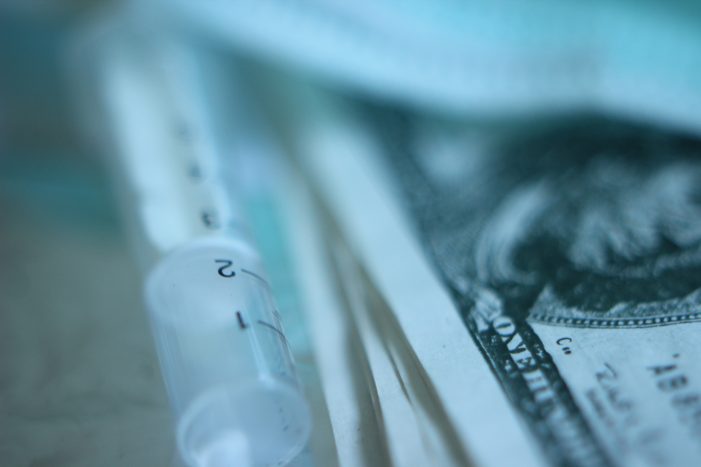U.S. to Spend Billions on New COVID Vaccines Despite Failure to Prevent Infection

The Biden administration announced earlier this month that the U.S. government will spend at least $5 billion on Project NextGen to rapidly develop “next-generation” SARS-CoV-2 vaccines and treatments despite evidence that current COVID vaccines do not prevent infection and transmission of the new coronavirus.1
Following a similar approach to “Operation Warp Speed” initiated by the Trump administration, the Project NextGen initiative has three primary goals: to develop a nasal vaccine; to develop vaccines that provide longer protection against severe symptoms of COVID-19 disease, and to create COVID vaccines that offer broader protection from severe complications of all variants of the virus.
The new initiative comes on the heels of confirmation by public health and medical professionals that current coronavirus vaccines are not effective in preventing infection and transmission of SAR-CoV-2.
NextGen Epidemiologist Calls Current Vaccines “Good, Not Great”
Since the U.S. Food and Drug Administration (FDA) granted COVID vaccine manufacturers an Emergency Use Authorization (EUA) to distribute COVID vaccines in the U.S., most public health and medical professionals have consistently stated that getting vaccinated for COVID was the single-most effective way to protect oneself and others from getting infected, being hospitalized or dying from COVID disease. For example, the Pfizer/BioNTech Comirnaty messenger RNA (mRNA) COVID shot was estimated to have a more than 95 percent efficacy rate.2
Now, in light of Project NextGen, these same experts are switching gears, warning that the current vaccines have become less effective and even incapable of reducing infection and transmission—echoing observations of many who spoke out early about COVID vaccine failures and were labeled as “COVID deniers” or “anti-vaxxers.”
Michael Osterholm, PhD, MPH, an epidemiologist working on Project NextGen, considers current COVID shots to be “really good, but not great.” He strongly promoted COVID shots during the pandemic but is now citing the rushed development of the vaccine to make it available. He has confidence in the development of what he calls newer, better vaccines without the pressure of a declared public health emergency. Dr. Osterholm said:
There is a substantial amount of work (to be done) to take these good vaccines and hopefully achieve better vaccines.3
Coronavirus Vaccine Effectiveness Waning at Warp Speed
Other public health and medical professionals have also admitted there are problems with the effectiveness of current COVID shots. “While our vaccines are still very effective at preventing serious illness and death, they are less capable of reducing infections and transmission over time,” a spokesperson for the U.S. Department of Health and Human Services (DHHS) said. “The infusion of a $5 billion investment, at minimum, will help catalyze scientific advancement in areas that have large public health benefits for the American people, with the goal of developing safe and effective tools for the American people.”1
White House COVID coordinator Ashish Jha, MD said at a July 2022 COVID vaccine summit:
We need vaccines that are more durable. Vaccines that offer broader and longer-lasting protection. Vaccines that can stand up to multiple variants. Vaccines that can handle whatever Mother Nature throws at us.iv
The U.S. Centers for Disease Control and Prevention (CDC) maintains that current COVID vaccines can “help prevent new variants from emerging.”4
Deaths in Vaccinated Individuals Steadily Rising
In May of 2021, the CDC quickly pivoted from tracking all COVID breakthrough cases—or individuals who contracted the SARS-CoV-2 virus despite being vaccinated—to only tracking breakthrough cases that resulted in hospitalization and death. Some states also reportedly had challenges reliably tracking the burgeoning breakthrough SARS-CoV-2 infection cases.5
Of the over one million people in the United States who have been reported to have died from COVID, many received at least one COVID shot. In fact, according to health policy research organization Kaiser Family Foundation, by April 2022, an alarming six in 10 COVID deaths were among vaccinated individuals, eroding the widespread narrative that the majority of COVID deaths were among the unvaccinated.6 7
The Cost of Fast Tracking New Vaccines to Market
As of December 2022, prior to the introduction of Project NextGen which will cost taxpayers at least $5 billion, the U.S. government had spent at least $30 billion on COVID shots. Once considered unsubstantiated “misinformation,” experts, including scientists, public health experts, and politicians, are now sounding the alarm that existing COVID vaccines and therapies are ineffective and that new ones are needed.8 9
If you would like to receive an e-mail notice of the most recent articles published in The Vaccine Reaction each week, click here.
Click here to view References:
No comments:
Post a Comment